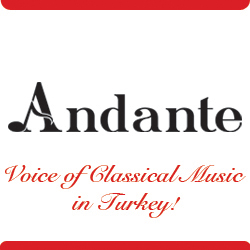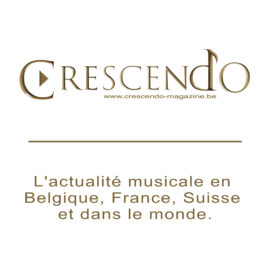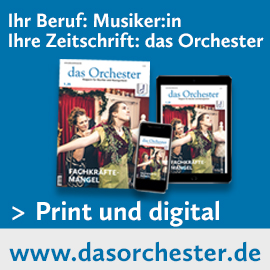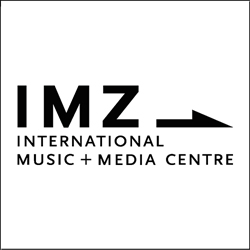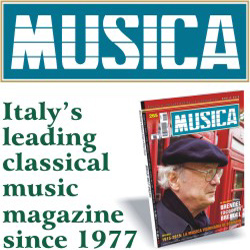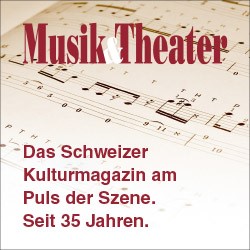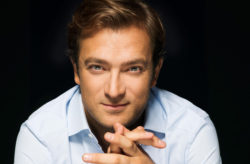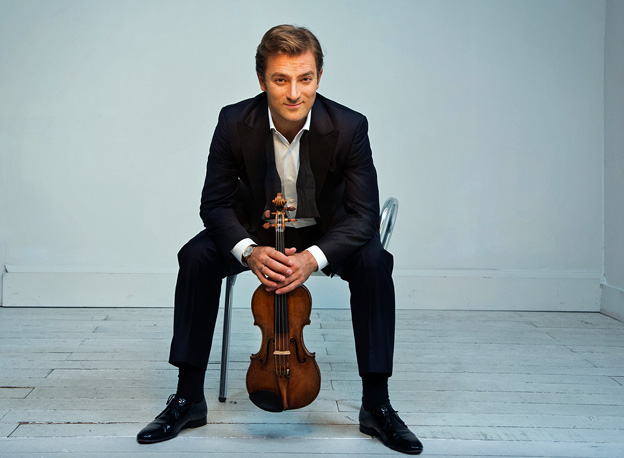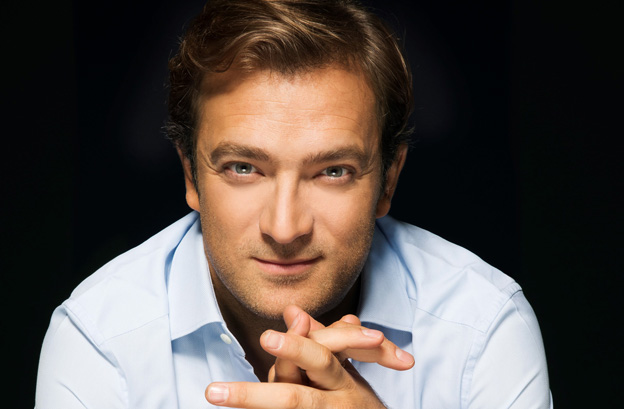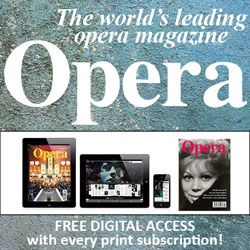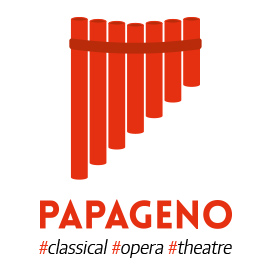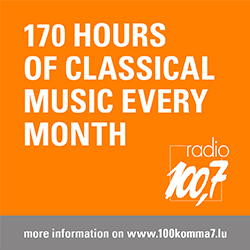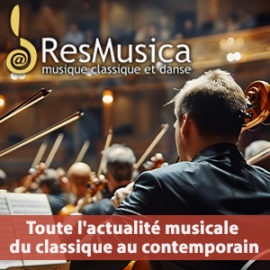Renaud Capuçon is Artist of the Year 2024 of the International Classical Music Awards. One look at his touring calendar or discography is enough to understand the extraordinarily broad range of musical activity the French violinist is engaged in. Capuçon’s activities go beyond soloist and chamber music work – he is a mentor, an artistic director of festivals, a conductor and artist committed to social and civic causes. The French musician remarkably managed to find time for a short conversation with Ariadna Ene-Iliescu, a collaborator of ICMA Jury member Radio România Muzical.
You have been named Artist of the Year of the International Classical Music Awards. What does this award mean to you?
It’s a great honour for me, of course, as a musician, as a violonist. I’ve known this association and this prize for a long time and I was absolutely surprised, because I didn’t know that I would be nominated. So when I got it, I was very happy! It’s an honour and it’s also a responsibility for a musician in these times when classical music has to be really defended.
On the 12th of April, at the International Classical Music Awards Gala in Valencia, you are going to perform Thème varié by Charlotte Sohy, a welcome surprise in the musical program of the evening. What determined your choice?
Well, I straight away proposed this piece. It’s like the smaller sibling of Chausson’s Poème. I discovered Charlotte Sohy, who was a French composer, like two or three years ago, and I have to say I fell in love with this music. I thought it was, first of all, amazingly well written. And I think it’s a good time also to play, to find out about the music of composers which are not always the most famous. As a French artist, I’m very happy to present it. I’m sure it will be the first time that this piece will be heard in Spain with orchestra. I played myself the piece with piano, but never with orchestra. So I’m very excited about it!
One may notice that French music has a marked presence within your repertoire and discography. Your debut album, Le boeuf sur le toit, is an exploration of virtuosic violin music written by French composers. What do you think distinguishes the French tradition?
Elegance, I think that comes first. And then of course the colours. But I think most of it is elegance and a certain art de vivre in the music, which you find also somehow in French fashion, in painting, in the food, in the ways of the great cooks in France… I think it’s all about refinement, elegance. And as a French violinist and musician, I think it’s important to defend it.
How would you describe your previous artistic year? What were the highlights?
Oh, you know, I’m a very busy musician. I am playing violin, I’m conducting my orchestra in Lausanne… so there are lots of musical highlights. One of them was that I had to learn the Schoenberg Violin Concerto, which I performed a few times with François-Xavier Roth. This was quite a tough work because it’s an incredibly difficult concerto. Right now I’m performing for the first time in my life the Prokofiev Violin Concerto no. 2, with Tugan Sokhiev. This was also something I was looking forward to for a long time. I also performed for the first time the Gubaidulina Offertorium in Paris and I’m giving the world premiere of the Thierry Escaich’s Concerto, that he wrote for me. We are doing a tour with Münchner Philharmoniker and Daniel Harding with concerts in Munich, Hamburg, Vienna and Paris.
So these are the highlights, but also I just made a Gabriel Fauré recording, which will come out in June with my Orchestre de Chambre de Lausanne. It will feature some very famous pieces like Pelléas et Mélisande, Masques et bergamasques, the Élégie, but also the Violin Concerto, which is absolutely unknown. I’m so proud and happy that finally the grand public will hear and discover this wonderful piece of Gabriel Fauré.
So there’s a lot of wonderful repertoire that you have approached this year. Like you said, you do many things. You play over 120 concerts a year, you conduct, while you also engage broadly in mentoring and artistic direction of several festivals. How do you manage to sustain this kind of creative energy?
Well, I think the motor is a love of music, because everything you just mentioned is connected to music. It’s always about making music. If it’s not playing, it’s conducting. If it’s not conducting, it’s sitting in a desk and doing some programming, which I do also when I’m in the plane, when I’m just traveling in the car, in the train. I’m constantly meeting musicians and doing some connections. I’m somebody who is very active and who doesn’t sleep so much. So I have a lot of hours to practice and to think about things. Basically, my life is music… my family and music. It makes me so happy. It’s true that if you look at my calendar and if you see the amount of things I do, you might think that I do too much. But I have never been as relaxed as now, even though I do 10 times more things than 20 years ago. And I practice in a much more efficient way, I use my time much more carefully, in order to be just, of course, in top form when I perform.
Your playing has been praised in numerous and various ways over the years. What do you think your three finest qualities as a musician are?
Well, I think the best quality of a musician should be to stay modest. So it’s not me to comment on my qualities. Perhaps if I would say one quality, it would be this passion for music, because it is something which really carries me and helps me to do everything. And the rest… depends on what you like. Some people like my sound, some people would prefer the sound of somebody else. So all this is completely subjective. But I think if there is one thing, this is it – this love for music and love of sharing music. This is actually the goal of my life. And again, it’s not within my position. I don’t like the fact of praising myself. If some people want to do it, I’m very happy. And I’m sure some people won’t do it and that’s fine also. But I’m focusing on my work and on my music.
The breadth of repertoire you have approached is truly impressive – from Baroque works to masterpieces of the Classical and Romantic periods, from oeuvres of Modernism to film music and premieres of contemporary pieces…
I think music is very large. And again, if you are as passionate with music as I am, then you constantly want to discover new things. These four new pieces I’m learning, that I told you about earlier – the world premiere by Escaich, the Schoenberg Violin Concerto, which I tackled least year, the Prokofiev Violin Concerto no. 2, which I added to my repertoire and the Gubaidulina work – they are a very good example of the variety of my repertoire. And this is only from December to now, four months.
So of course it’s a lot of work. But I need German music, for example. I constantly need to go back to Schubert, Brahms, Sonatas, Trios. Next week I’m playing Schubert – Trio and Trout Quintet, I played last week the Strauss Sonata… I need German music because I need to feel again the sharing of music in the most direct way. It’s very good to keep a balance.
But I also love to play with the orchestra. And somehow I learned a lot performing new pieces from living composers because finally you can meet them, you can speak with them, you can ask all the questions that you would be dreaming of asking Brahms, Schubert, Schumann or Beethoven. And of course you can’t. So it’s wonderful because this act of learning with living composers gave me much more freedom then in the case of the ones who are not there anymore. Because when you ask questions to Dusapin or to Escaich or to any living composer, you can realize that they are not as dogmatic as we imagine they would be. What I mean is, of course, you have to respect the text, the base, of course, as a player. But really often the composers give you much more freedom than you expect. So it made me play Mozart, Beethoven and Brahms also with much more freedom than I expected myself to do before. And that’s why I like doing various repertoire – because one nourishes the other. And then I think you progress all the time. It’s the goal of a musician.
If I’m 48 years old, if I would tell you, yes, I think I did everything, I’m satisfied with myself and I’m great, then it would be better for me to put my violin in the box and to go to do some other job because it would mean I have nothing to say. I’m exactly the opposite of this. I constantly want to learn, to progress and to discover new things. And I think I would need four or five lives, or even more to be able to fulfill my goals.
Going back to something you mentioned just now, in your perspective, do soloist activity and chamber music complement each other somehow?
Yes, I’ve always needed to play both chamber music and concertos. It was always a balance I kept in my musical life. And now I’m conducting quite a lot, at least 50 concerts a year. And I’m learning a lot through conducting. It’s also a new way of approaching music, even though I’m still the same musician and I bring all my knowledge that I have learned all these years. But it’s about trying to share these activities. If I teach, I learn from the students; if I conduct an orchestra or play concertos, I learn from the musicians; if I play chamber music, I learn from my partners. It’s a constant way of learning.
Actually, concern for the young generation of musicians is a constant in your work. How would you describe your approach to teaching and mentoring?
For me, it’s as natural as teaching and speaking to my son. I was teaching him how to walk and to speak, I was helping him with this. It’s completely natural when it’s your son. And I feel it’s as natural for me, with young musicians, to be there for them and to answer their questions. I have a small group of very gifted musicians that I help, that I record with and that I bring with me on stage. I think it’s very important to do this.
You have mentioned in previous interviews that you take great pleasure in poetry. How does that fit into your playing?
I think poetry has always been very dear to me…I discovered poetry when I was 14, 15. I believe making music is poetry and poetry is music. I think they are completely connected. Poetry is the music of words. So if I hear poetry, or if I read poetry, I hear music. I think it’s totally connected to my play and my way of seeing music. Actually, I don’t think even about it, but I feel it’s highly connected.
In addition to your extraordinarily wide musical activity, you are committed to social and civic causes, you are an UNESCO Artist for peace since 2020. It could be said that you are an ambassador of classical music. What do you feel your mission is?
The mission is wide and somehow I feel it’s never enough, because you can always do more. I do a few actions in the year to sustain some causes – I play with my orchestra in Lausanne for hospitals, we play for people with disabilities, for old people. I think it’s very important. Also to have a voice internationally, in the face of political leaders, just to be there in case that somehow culture is going down or it has less money from the government. I think it’s very important to have a strong voice. As you know, Daniel Barenboim is somebody who always uses his voice to defend the art of music and the music business. And I think we need in a new generation to have some people who do the same and who take this claim of defending music and saying how important and how strong music is, for diplomacy, for making peace. It’s not just words, it’s not just a fantasy. I really believe in the true meaning of music as a real way to connect people.
You have started playing music at the age of 4. In the meantime, you have played with some of the greatest conductors, performed in the most important halls, collaborated with the most renowned orchestras and musicians. What does music-making mean to you?
Music making is always the same pleasure. For me, it’s about the love of sharing music with others and offering it to the public. And it’s about sending a message. It’s like if you’re a Christian, as I am, or if you are a believer or if you have faith, then it’s a connection to God. And if you’re not, then it’s a connection to nature. But clearly it is something which is stronger than what we are, it’s above everything. Music is a way to connect. My passion for music is so strong because I know that through music I can bring a lot of things, you know, not only music, but what comes beyond.


